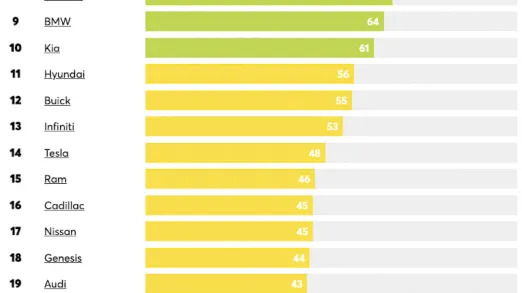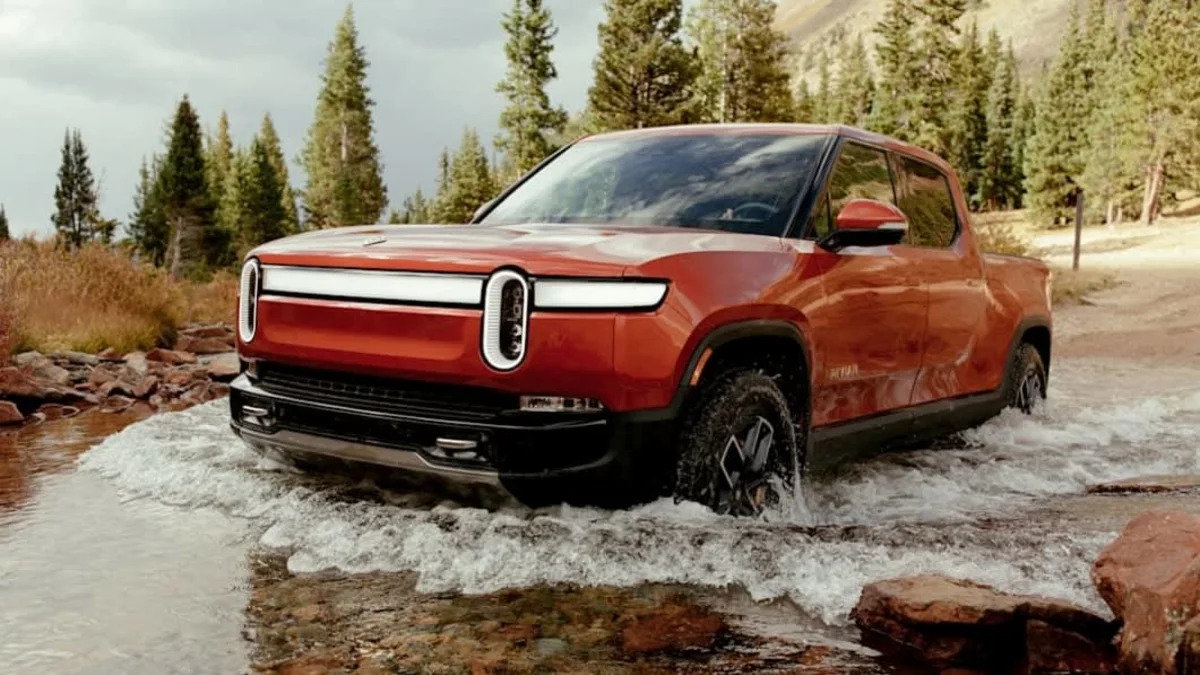Consumer Reports reworked its methodology for deriving predicted reliability ratings, and updated the questions about problem areas to address issues specific to electrified and electric vehicles. The results still bear out clichés, such as: vehicles that have been on the market longer being generally more reliable; and sedans being generally more reliable than SUVs and trucks. There are exceptions, of course, like the Chrysler Pacifica Hybrid scoring the lowest of any rated vehicle with a score of 14 on a 100-point scale, and the Toyota RAV4 Hybrid being among the most reliable vehicles in the survey. There's unwelcome news in the results for the fast-growing world of battery-electric vehicles and plug-in hybrids, though: EVs suffer 79% more problems than ICE vehicles, and PHEVs are much worse with 146% more reliability issues than ICE vehicles.
Let's start with how the rankings were won. CR created problem categories ranging from mild (squeaks) to major (EV battery trouble), each category given a weighting. There were 12 potential problem areas specific to battery-electrics, there were 17 potential problem areas for ICE-powered vehicles, 19 for regular hybrids — the 17 ICE problems plus the electric motor and battery pack, and 20 potential problem areas for PHEVs — the 19 from regular hybrids plus EV charging.

CR polled its members about reliability issues over the past year, receiving responses on more than 330,000 vehicles from the 2020 to 2024 model years. Brands were scored on the "weighted overall problem rate for all models within a brand for each model year" combined with a brand's average result from the 2021 to 2023 or 2024 model year depending on how much info there was for 2024, combined with CR's owner satisfaction survey and CR's in-house testing and safety data. Thirty automaker brands made the final rank; CR couldn't get enough responses to include Alfa Romeo, Fiat, Jaguar, Land Rover, Lucid, Maserati, Mitsubishi, or Polestar.
The new equation means this year's result can't be compared to previous reliability rankings.
Now to the results:
Lexus topped the charts with a score of 79 out of 100, followed by Toyota (76), Mini (71), Acura (70), and Honda (70) for the top five. Let's take a moment to at least acknowledge that Mini, a brand once known for terrible reliability, is now No. 3. That either requires a "bravo!" or an inquisitive eyebrow.
The bottom five: Jeep (26), Volkswagen (26), Rivian (24), Mercedes-Benz (23), and Chrysler (18).
Buick was the top American make at No. 12 with a score of 55, between Hyundai (56) and Infiniti (53). Generally, domestic brands didn't do well, scoring an average of 39 out of 100 when grouped as a region, coming well behind Asian makers who scored 63 and Europeans who scored 46. Individual domestic models provided some bright spots, though, CR calling out rides like the Ford Edge and Maverick, Buick Encore GX, Chevrolet Equinox, and GMC Terrain for above-average predicted reliability.
Consumer Reports also grouped powertrains together when discussing reliability, which is where we start to have some issues. Apparently, EVs suffered 79% more problems than gas-powered vehicles. That will undoubtedly lead to shock headlines, but it's also misleading. Most EVs are new to the market, which goes back to the cliche we mentioned earlier. There are also a lot fewer make/models availability, meaning that simply averaging them all models together will result in a few bad apples skewing the results. Tesla, which was midpack in terms of reliability, cannot be considered one of those bad apples, but it's hard to imagine that its enormous percentage of EVs sales and therefore ownership reporting wouldn't skew comparisons to ICE cars given the popularity and sales volumes of those brands above it on the list.
Plug-in hybrids fared even worse in this powertrain-to-powertrain reliability analysis. CR says PHEVs scored a whopping 146% worse for trouble spots than ICE-only vehicles, which sounds terrible, but again, this was because of a "few bad apples." The Audi Q5 and aforementioned Pacifica, which also single-handledly dragged Chrysler to the bottom of the pile, scored worse than their ICE siblings. Meanwhile the Toyota RAV4 Prime, Kia Sportage, BMW X5, and Ford Escape plug-in hybrids all posted average to well-above-average scores for reliability.
In other words, this is a lot more complicated than it seems.
Head to CR's writeup for even more on the data and the breakdowns.


Sign in to post
Please sign in to leave a comment.
Continue